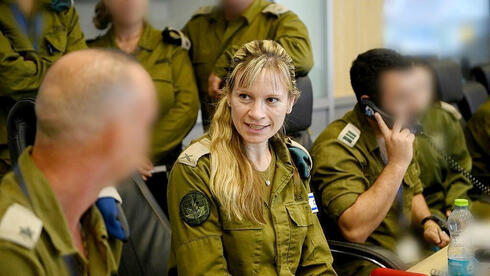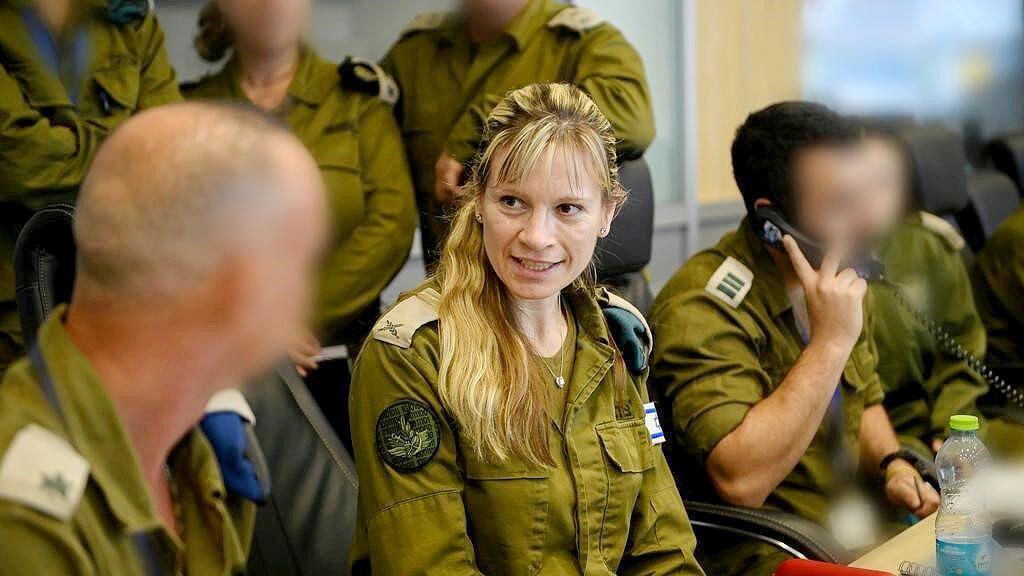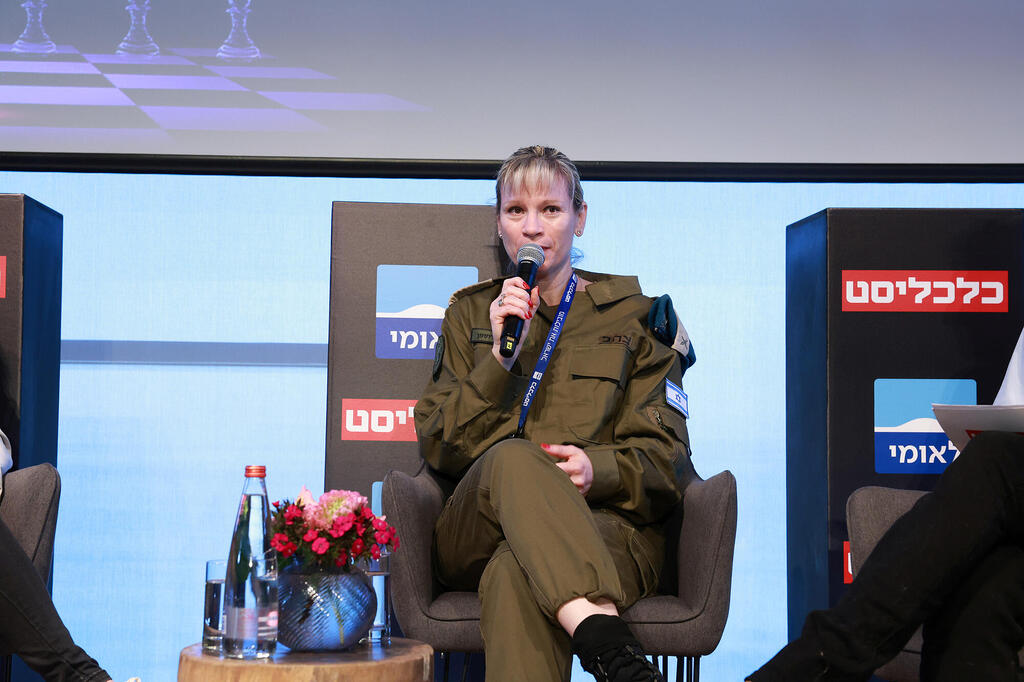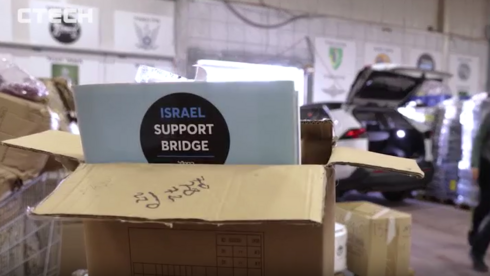
"Everyone who deals with security today looks at the field with much more humility"
The commander of the Lotem unit, Brigadier General Yael Grossman, understands that the security reality will occupy Israel for decades to come, and talks about the contribution of the high-tech workers who reported to the unit's reserves on October 7 without being required to
When asked how the technologies that the army boasted about for decades failed so miserably on the morning of October 7, the commander of the Lotem unit, Lt. Col. Yael Grossman, has a clear answer: "We will always have to have good people, fighters and commanders to operate the systems. As long as your enemy doesn’t speak in bits, you won't be able to speak only in bits either. There is no chance. This is one of the things that the IDF learns from, understanding that we exist in an augmented reality."
Lotem, an elite technological-operational unit in the IDF, is responsible for all communication systems and information system security. The unit develops the dedicated software used in the army's operational systems, such as the system for warning the public about the firing of missiles and rockets.
2 View gallery


Yael Grossman, commander of IDF's Lotem Technological Unit
(Photo: IDF Spokesperson Unit)
In the multi-layered reality that Grossman talks about there is technology, people and a lot of weapons. From her point of view, "This is the security reality that will occupy Israel for many years to come, even decades. The environment we are in is special. We did not choose our neighbors, and this environment will always challenge us and require us to have fighters. The more we, the technological people, know how to enrich them with information and precise abilities, it will make it easier for them to do the actions that the army is required to perform."
The failures of the IDF on October 7 and in the long period that preceded it will be investigated and discussed for many years to come. They also include the failure of the technological concept, requiring a deep inquiry into the durability of the measures along the barrier of the Gaza border, which was built with an investment of billions of shekels, and did not survive against an enemy that was armed with simple weapons. "There were all kinds of surprises on that morning," says Grossman. "In places we knew and dealt with, the scope of the surprise was lower. In the places we did not treat or deal with, the scope of the surprise was different. That day and the days that followed, we responded very quickly, and that is significant in my eyes."
What do you take away from this whole period?
"I am responsible for the Lego of the 'engineering building blocks', for our information factories, for the processes of network-based warfare and for the development of the people in my unit. The connection of the regular world with the reserves and also the combination of the defense industries and the high-tech industries that mobilized to provide solutions for the IDF, these are connections that contribute a lot to the mission.
"You have to constantly practice and stretch the scenarios to the limit, because we don't know what we don't know. If we take things to the limit, we'll discover things we didn't know and become better. It's also collecting information and connecting pieces of information. We work on platforms that connect text content, video and audio, because the whole is greater than the sum of its parts. It's to make the solutions we offer precise, because that's what the field needs."
2 View gallery


Lotem commander Yael Grossman speaking at Calcalist's Female Leaders Conference in a panel on the IDF and defense
(Dana Kopel)
More humility and modesty?
"Humility exists in Lotem and I think it received another significant boost after October 7. I think that everyone who deals with security today looks at the field a little differently, with much more humility."
What does it mean?
"That we know a lot of things, but the more we know, the more we realize that we don't know everything. That it's okay to use other factors and ask questions and in places where we don't need to, not to reinvent the wheel, and where we do need to, invent it and be creative."
Your unit is responsible for the public warning system for rocket fire. It seems that this is one of the only services that the Israeli public received from the IDF on the morning of October 7.
"In this war, for the first time, we engaged in giving warnings about rocket fire outside Israel's borders, to the forces operating in the Gaza Strip. They were transmitted by other methods, in the communication and radio systems inside the tools used by our fighters in the field, through an encrypted cell phone that I provide to the forces or through mobile sirens."
One of Grossman's intermediate lessons, after about four and a half months of war, talks about the development of the unit's reserves. The reservists showed up at the gates long before they were called upon. "We are now working on the development of a Lotem reserve unit from the understanding of the tremendous added value of those professionals who today are integrated into Israeli high-tech and academia and who want and are able to contribute and enrich us with their tools and insights. They brought thinking outside the box, new ideas, sometimes provided an additional professional eye. It had a lot of added value."
Before the war, there was a discussion about the challenges of retaining high-quality technologists in the IDF against the temptations beckoning them in the civilian world. Does the war change anything in this regard?
"There are those who say that now, they feel an obligation and a need to remain in the military framework. Others feel differently, because the whole experience is more complex for them. We create for all those serving in Lotem the opportunities to see the added value they bring. When a person feels that they are doing something with meaning, they want to continue and keep giving."














